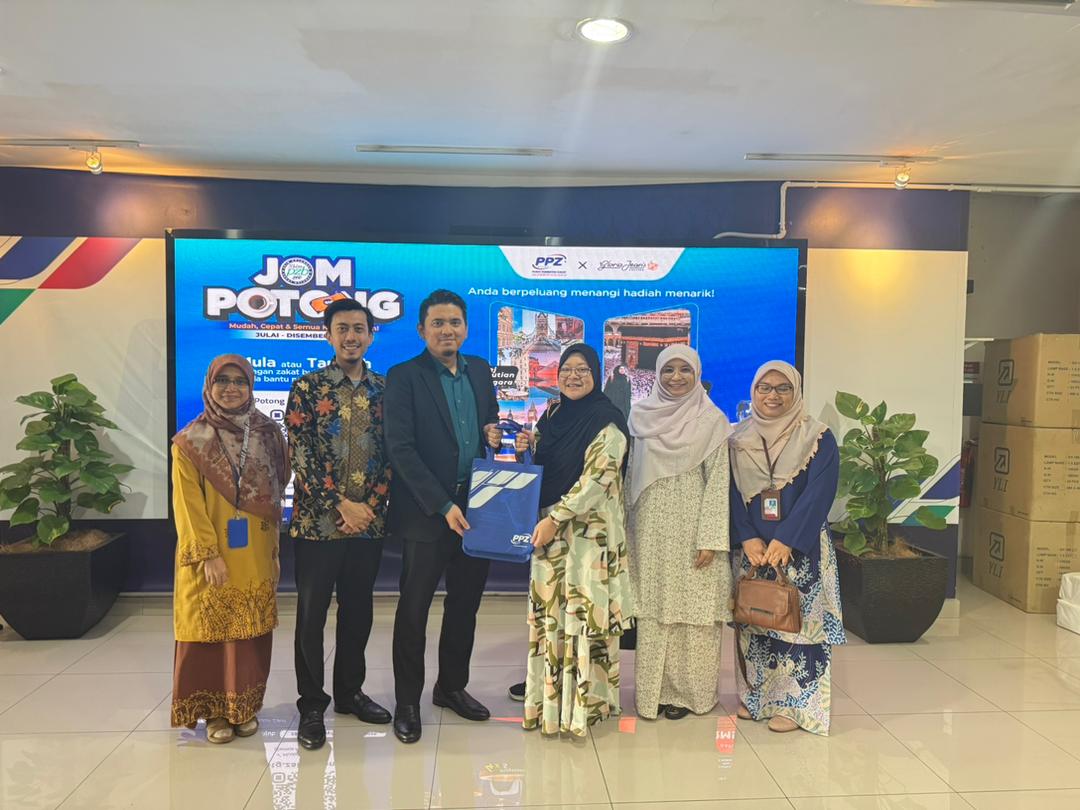
Extended Urban Poverty Study: Strengthening Zakat Research and Policy
- Post by: AZKA
- August 21, 2025
- Comments off
Kuala Lumpur | 21 August 2025 – Urban poverty has long been one of the pressing realities of modern Malaysia. Behind the gleaming skylines and economic progress, there are pockets of families in the city struggling with the rising cost of living, unstable incomes, and the challenges of making ends meet. For zakat institutions, this reality presents both an obligation and an opportunity: to ensure that the system not only provides relief, but also paves the way for empowerment and long-term transformation.
It is within this context that the Akademi Zakat (AZKA-PPZ) team took part in the Extended Urban Poverty Study discussion on 21 August 2025. This session built upon earlier research efforts to better understand the socio-economic realities of the urban poor, while also moving the conversation forward with new initiatives and collaborations.
From Initial Findings to Deeper Insights
The earlier phases of the urban poverty study helped outline key dimensions of the issue: the profiles of affected households, the financial pressures they face, and the social dynamics that shape their vulnerabilities. It became clear that the challenge of miskin bandar is not just about insufficient income. It is about housing affordability, access to quality education, health costs, and the rising price of basic necessities.
Zakat, in this context, has proven to be an important safety net. Yet, the discussions at the session also highlighted that zakat must go beyond immediate distribution. It needs to become a lever for empowerment — helping the poor build capacities, develop income streams, and eventually move from being recipients to becoming contributors.
Towards a New Research Collaboration
One of the significant outcomes of the session was the agreement to embark on a new collaborative research project with Universiti Sains Islam Malaysia (USIM), through the Institute of Wealth Management and Islamic Finance (IFWMI). This collaboration will focus on developing a scholarly and policy-oriented book titled:
“Transforming Asnaf into Zakat Payers Among the Urban Poor.”
The vision behind this publication is ambitious yet necessary. By blending theoretical perspectives with empirical research, the book aims to explore how zakat can play a transformative role. It will document practical strategies, assess real-world programmes, and recommend policy directions that could enable asnaf households to break out of the poverty cycle and eventually join the community of zakat payers.
For the Federal Territory of Kuala Lumpur — a hub of urban migration and economic opportunity, but also stark inequality — this research will provide timely and critical insights.
AZKA-PPZ’s Role and Commitment
As the research and knowledge arm of PPZ-MAIWP, AZKA-PPZ plays a central role in bridging theory and practice. The Extended Urban Poverty Study reaffirms this mandate. By participating in the session, the AZKA team not only contributed institutional perspectives but also positioned itself as a facilitator of knowledge that can inform both academic debates and policy decisions.
The broader mission is clear: to ensure that zakat is not only managed with efficiency and accountability, but also guided by knowledge, research, and long-term vision. Empowerment is at the heart of this mission, and studies such as this provide the evidence base to design impactful programmes.
Looking Ahead
The Extended Urban Poverty Study and the forthcoming collaboration with USIM mark an important step in Malaysia’s zakat journey. It is a move from relief to empowerment, from distribution to transformation.
The hope is that this work will not remain on paper alone. It should translate into policies, programmes, and initiatives that genuinely uplift urban asnaf families — enabling them to stand on their own feet, contribute to society, and even join the ranks of zakat payers themselves.
For AZKA-PPZ, the journey continues. Each study, each collaboration, and each reflection brings us closer to a zakat ecosystem that is professional, relevant, and impactful. One that does not simply alleviate poverty, but helps to end it.
Importantly, this extended study builds on AZKA-PPZ’s earlier work. Previously, AZKA-PPZ published the book “Penanda Aras (Threshold) Miskin Bandar di Wilayah Persekutuan”, which serves as the original baseline study for understanding urban poverty. The publication can be freely downloaded here: https://azka.zakat.com.my/2025/penanda-aras-threshold-miskin-bandar-di-wilayah-persekutuan/.
